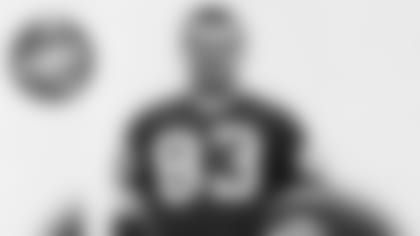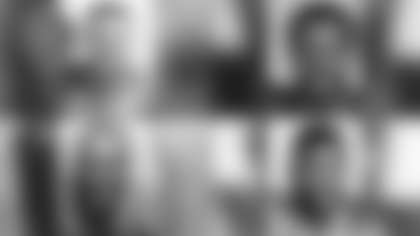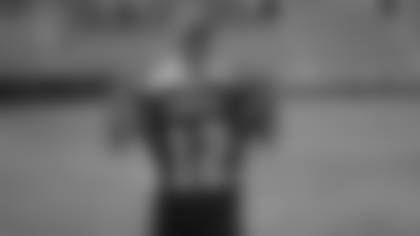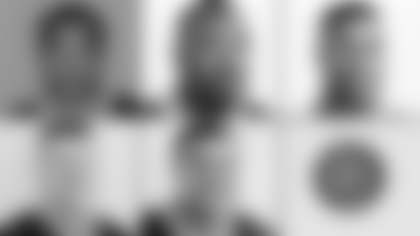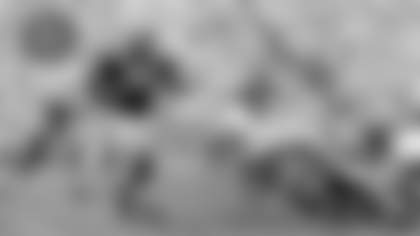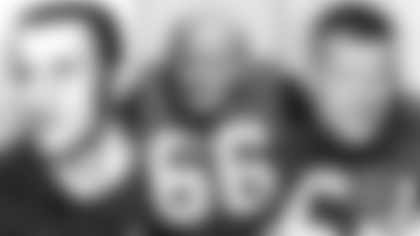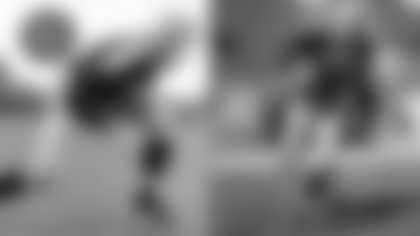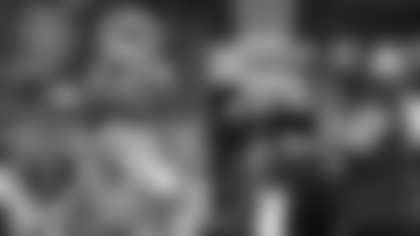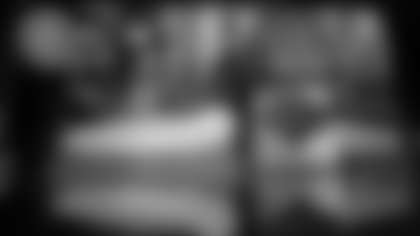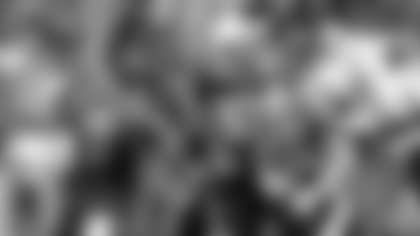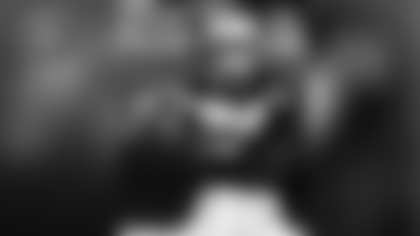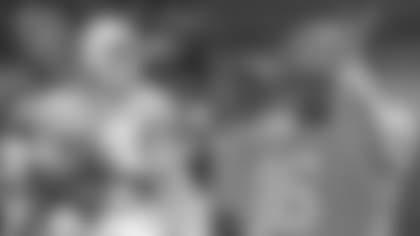Cliff Christl started gathering oral histories with former Packers and others associated with the team in 1996 and will continue to gather them as Packers historian. Excerpts from those interviews will be periodically posted at www.packers.com
Bill Quinlan was the Packers' starting right defensive end from 1959-62, including Vince Lombardi's first two NFL championship teams. Although limited as a pass rusher and lacking in range against the run, Quinlan was hard-nosed, physical and tough to budge at the point of attack. Lombardi acquired Quinlan, then a third-year veteran, in April 1959 in his first major trade. He shipped star end Bill Howton to Cleveland in exchange for Quinlan and halfback Lew Carpenter. Following the 1962 season, Lombardi traded Quinlan and safety John Symank to the New York Giants for what turned out to be a third-round draft pick in 1964. The Giants, in turn, immediately traded Quinlan to Philadelphia. Quinlan played three more seasons: 1963 with the Eagles, 1964 with Detroit and 1965 with Washington.
On joining the Packers in 1959: "I lived upstairs from a downtown bar with (Ray) Nitschke. I was a bachelor then. My wife stayed home. Nitschke and I were roommates. He was as nutty as I was. We were too much alike. I lived with my wife in Green Bay after the first year."
On why Cleveland coach Paul Brown also traded defensive tackle and future Pro Football Hall of Famer Henry Jordan to the Packers in 1959: "Paul Brown was a son of a (buck). If he didn't like you, he didn't care who you were, he'd get rid of you. You had to be a lapdog for Paul Brown. You had to be like a Lou Groza: a perfect gentleman off the field, as well as on."
On his strengths as a player: "I was much better against the run. Like Joe Schmidt (middle linebacker for Detroit) said, 'I was the best defensive end on a run play in the league.' We read them pretty good with my linebacker and tackle. I'm talking about Bill Forester and Jordan. We knew exactly what each would do."
On living in Green Bay and playing for the Packers in the 1960s: "Green Bay was such a small town. You couldn't get rid of one another, no matter how hard you tried. It wasn't like Cleveland, where you'd just see each other at the practice field. You'd see each other 24 hours a day practically. We were a close team on and off the field."
On living in Green Bay during the Lombardi era: "They had one restaurant in Green Bay – for (cripes) sake – forty years ago called The Spot. They didn't have anything. It was such a small town. There was a bar across the street from the Northland Hotel where the players hung out. We drank a few nights a week. Come Friday, Saturday before the game, we'd taper it right off. We were in such good physical shape, you know. We had our cocktails. Why not?"
On his closest friends on the team: "I hung out with (Max) McGee, (Paul) Hornung, Nitschke."
On Hornung: "We were scotch drinkers. I haven't had a drink in 20 years, but I owned bars after I quit playing."
How about when he was playing with the Packers? "I loved drinking. I loved everything. The sky was the limit. We had a couple cocktail lounges. We stayed right around the neighborhood."
On Nitschke: "He was tough on and off the field. He was crazy like myself. Give him a couple of cocktails and he'd go whacky. There's a lot of noise in those bottles, you know. Just crazy. We never fought in those bars. Just had fun. Call one another a (bleep), (stuff) like that."
On fullback Jimmy Taylor: "He was great. He wouldn't run around you. He'd run though you. That was his makeup. He enjoyed hurting a defensive back or linebacker. He was the toughest I've ever seen. He was crazy. He was mean."
On quarterback Bart Starr: "He never hung around with the players in the bars."
On defensive tackle Dave Hanner: "He was a prince. He'd have a few cocktails with us, but he loved his cup of coffee."
On being summoned to commissioner Pete Rozelle's office during the 1963 gambling investigation, which led to the suspension of Paul Hornung: "I was called in. I never gambled on football; I gambled elsewhere. The Commissioner. Oh for (cripes) sake, they asked me: 'Do you know Mr. Abe Samuels in Chicago? He's a renowned gambler. Do you know Dick Fincher in Miami?' Of course, I knew those guys. They had about five people at the desk asking me 100 questions. Do you know this man? Do you know this man? Do you gamble? Do you do this and do that? I just went along with the whole thing. They asked me if I would take a lie detector test after. I think if I would have taken the test, I would have broken the whole machine. They asked me and then said, 'You're all through Mr. Quinlan.' I said, 'What time does the double go off at Aqueduct?' They said, 'Get out.'"
On whether he ever took the lie detector test: "They never gave me the test and never got back to me. I never gambled on football."
On why Lombardi traded him: "I wasn't the easiest guy in the world to handle. I was a wild individual, never gave a (crap). I guess he didn't like that and felt he could get along without me. He laid the laws down and you screwed up and paid the consequences. I guess I screwed up too much and he said, 'The hell with Quinlan, we've got to get rid of him.'"
On defensive coach Phil Bengtson: "He was one of the nicest people in the world. I'll never forget what he said one day in New York. I was looking up at the (scoreboard) to see how much time was left in the game. Phil Bengtson looked at me and said, 'Quinlan, a clock-watcher will never be a top-notcher.' Excellent coach."
On the 1962 NFL Championship Game in New York, his last game with the Packers: "It was a miserable, cold, cold day. That was a tough game weather-wise. It was just horrible. The field was like cement. It was the worst conditions I've ever witnessed. The wind factor was everything. After the game, we just sat in the shower for like 10 minutes and let the hot water run on us. That's all you could do to thaw it."
Quinlan died in 2015 at age 83. The above interview was conducted in 2003.



